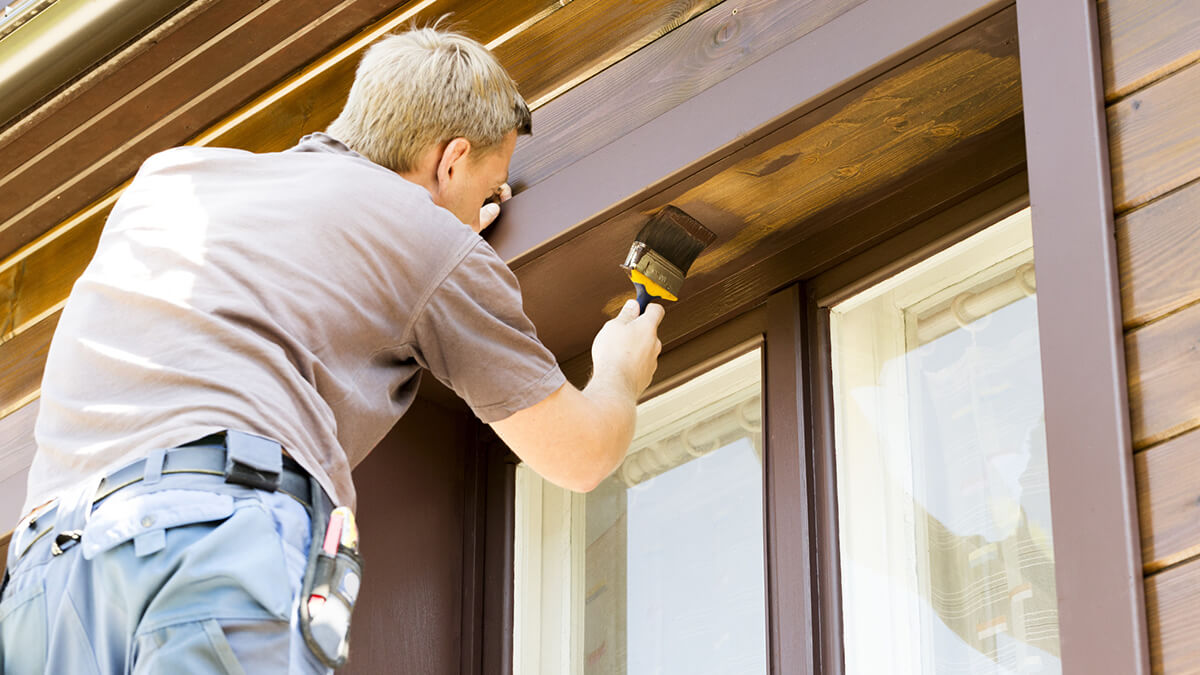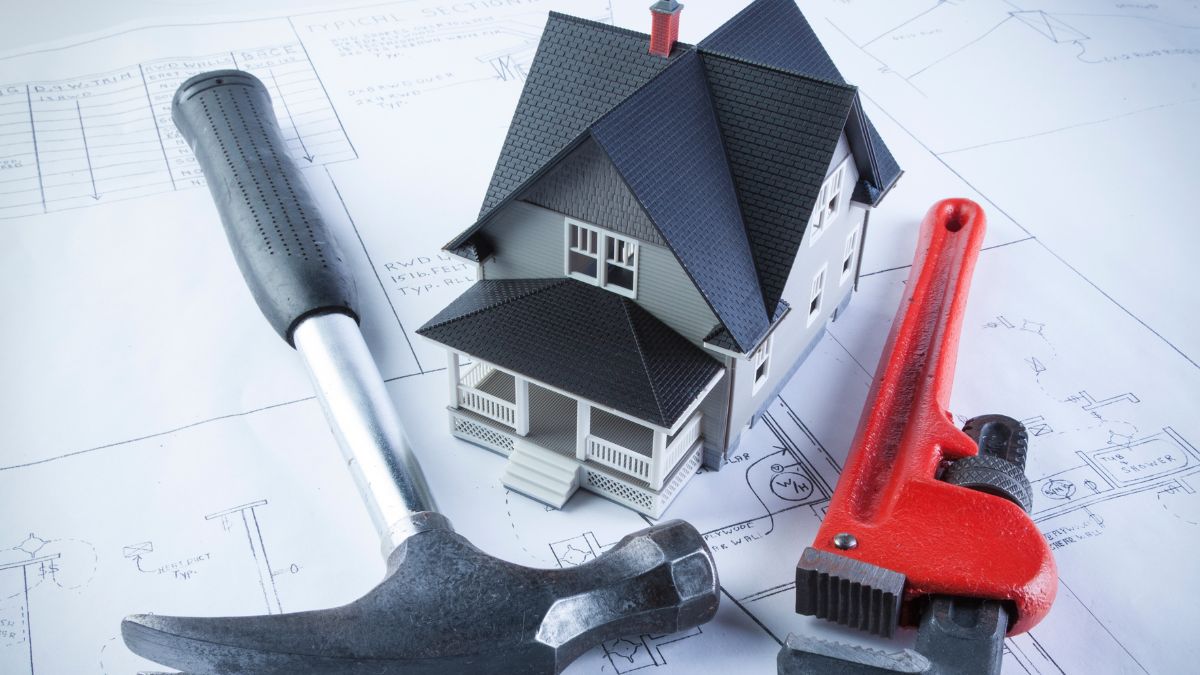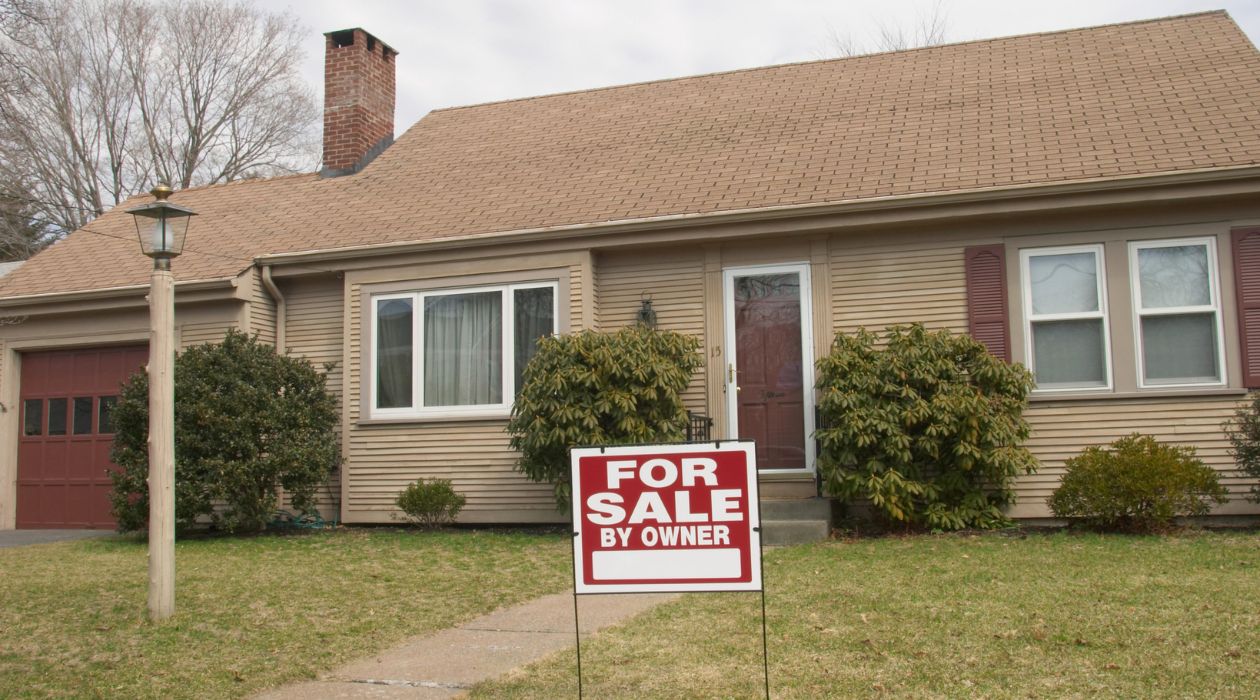Home>Home Maintenance>Dealing With Home Repair Demands When Selling A House


Home Maintenance
Dealing With Home Repair Demands When Selling A House
Modified: March 21, 2024
Are you selling your house? Learn how to handle home maintenance and repair demands to ensure a smooth and successful sale.
(Many of the links in this article redirect to a specific reviewed product. Your purchase of these products through affiliate links helps to generate commission for Storables.com, at no extra cost. Learn more)
Introduction
When selling a house, it’s not uncommon for potential buyers to request repairs as part of the negotiation process. Dealing with these home repair demands can be a crucial step in ensuring a successful sale. As a seller, it’s important to understand the ins and outs of handling these requests in order to maximize the value of your property while also avoiding unnecessary stress.
In this article, we will explore the essential steps involved in navigating through home repair demands when selling a house. From assessing the condition of your property to negotiating repair requests with buyers, we’ll provide you with valuable insights and tips to help you effectively manage the entire repair process.
So, let’s dive in and find out how you can tackle these home repair demands like a pro!
Key Takeaways:
- Prioritize essential repairs to ensure safety and functionality, and consider hiring professionals for quality work. Document repairs to build buyer confidence and negotiate effectively.
- Clear communication, thorough planning, and attention to detail are key to managing home repairs. Stick to your budget and focus on safety to attract potential buyers.
Read more: Home Improvements When Selling A House
Understanding Home Repair Demands
Before diving into the specifics of handling home repair demands, it’s important to understand what they entail. When potential buyers visit your house, they may notice certain issues or areas in need of repair. These can range from minor cosmetic fixes to major structural concerns.
Buyers may request repairs for various reasons. Some may simply want the house in perfect condition before moving in, while others may be concerned about safety or potential future costs. It’s crucial to keep in mind that these demands are part of the negotiation process and should not be viewed as a personal attack on your home.
Understanding the nature and extent of the repairs demanded is the first step. Take the time to carefully review the requests and assess their validity. It’s important to differentiate between cosmetic issues that may be purely subjective and essential repairs that could affect the functionality or safety of the property.
Consider consulting with a trusted home inspector or contractor to help you evaluate the requested repairs. Their professional expertise can provide valuable insights into the severity and urgency of each repair request. By understanding the scope of the demands, you’ll be better equipped to prioritize and tackle them effectively.
Keep in mind that in some cases, buyers may use the repair requests as a negotiation tactic to lower the asking price of the house. It’s essential to approach these demands with a level-headed mindset and consider the potential impact on the overall sale price. Balancing the buyer’s concerns with your own financial considerations is key to navigating the negotiation process.
Now that we have a clear understanding of what home repair demands entail, let’s explore the next steps in effectively managing them.
Assessing the Condition of Your House
When faced with home repair demands, it’s crucial to assess the condition of your house thoroughly. This assessment will help you determine the actual repairs needed and the potential cost involved, aiding in your decision-making process.
Start by conducting a detailed walk-through of your property, paying close attention to any visible signs of wear and tear. Check for issues such as leaky faucets, electrical problems, cracked walls, or damaged flooring. Take note of any major repairs that may be required, such as a roof replacement or HVAC system repairs.
Consider hiring a professional home inspector to conduct a comprehensive inspection of your property. Their trained eye can help identify hidden issues that may not be evident to you. They will provide you with a detailed report outlining any existing problems and potential areas of concern.
Based on the inspection report, create a list of the repairs that need immediate attention. Categorize them into critical repairs that are necessary for the safety and functionality of the house, and non-critical repairs that are more cosmetic in nature.
Having a clear understanding of the condition of your house will enable you to respond to repair demands with confidence. You can distinguish between repairs that are already on your radar and those that are newly identified by the buyer.
It’s important to remember that no house is perfect, and buyers are aware that some level of repair or maintenance may be required. By being proactive in assessing your house’s condition, you can better negotiate repair demands and set realistic expectations for potential buyers.
Once you have completed your assessment, you can move on to prioritizing the repairs and deciding whether to handle them yourself or enlist the help of professionals.
Prioritizing Repairs
After assessing the condition of your house and identifying necessary repairs, the next step is to prioritize them. Not all repairs may be feasible within your budget or timeframe, so it’s important to focus on the most critical ones first.
Start by categorizing repairs into two main groups: essential repairs and cosmetic repairs. Essential repairs include issues that directly impact the safety, functionality, or structural integrity of the house. These repairs should be the top priority, as they can significantly affect the saleability of your property.
For example, repairs related to plumbing, electrical systems, or the roof are typically considered essential. These repairs address potential hazards and provide peace of mind to potential buyers. Tackling these repairs right away can help build trust and confidence in your property.
Cosmetic repairs, on the other hand, are more of an aesthetic nature and can include things like repainting walls, fixing minor cracks, or updating outdated fixtures. While these repairs can enhance the overall appearance of the house, they may not be as urgent as essential repairs.
Once you have categorized the repairs, evaluate your budget and time constraints. Determine how much you can afford to spend on repairs and how quickly you need to address them. This will help you further prioritize the repairs based on their cost and time requirements.
Keep in mind that buyers may have different preferences and expectations. While some may value a move-in ready property, others may be willing to take on certain repairs themselves. By focusing on essential repairs and addressing any major concerns, you can ensure that your house appeals to a wider range of potential buyers.
Additionally, consider the local market conditions and the specific demands of your target buyers. If similar properties in your area are selling quickly and at a premium, it may be worth investing more in repairs to maximize the potential sale price.
By prioritizing repairs strategically, you can allocate your resources effectively and increase the overall attractiveness and value of your property. With your priorities set, you can now decide whether you can handle the repairs on your own or if you need to hire professionals.
DIY vs. Hiring Professionals
One of the crucial decisions you’ll have to make when dealing with home repairs is whether to tackle them yourself or hire professionals. Both options have their pros and cons, and it’s important to consider factors such as your skill level, time availability, and budget before making a decision.
DIY repairs can be a cost-effective option if you have the necessary skills and experience. It allows you to save money on labor costs and gives you complete control over the repair process. However, it’s essential to be realistic about your capabilities and assess whether you have the knowledge and tools required to complete the repairs successfully.
Before diving into DIY repairs, ask yourself the following questions:
- Do I have the necessary skills and knowledge to complete the repairs?
- Do I have the time to dedicate to the repairs?
- Am I comfortable working with tools and handling potentially hazardous materials?
If you have doubts or lack the expertise, it may be best to hire professionals. Hiring skilled contractors or tradespeople ensures that repairs are done to a high standard and meets the expectations of potential buyers. They have the experience, tools, and expertise to handle a wide range of repairs efficiently and effectively.
When hiring professionals, take the time to research and obtain multiple quotes from reputable contractors. Ask for references from previous clients and check online reviews to ensure their credibility and quality of work. It’s also important to clearly communicate your expectations and the scope of the repairs to avoid any misunderstandings.
Keep in mind that hiring professionals may come at a higher cost, but it can save you time and provide peace of mind knowing that the repairs are in capable hands. Additionally, having professionally done repairs can instill confidence in potential buyers and increase the value of your property.
Ultimately, the decision to DIY or hire professionals depends on your personal circumstances, skill level, and budget. It’s important to weigh the pros and cons of each option and choose the approach that will deliver the best results for your specific situation.
Once you’ve decided on the repair approach, obtaining repair estimates will help you understand the potential costs involved and make informed decisions during negotiations with buyers.
Obtaining Repair Estimates
Obtaining repair estimates is a crucial step in managing home repair demands when selling a house. It allows you to assess the potential costs of the necessary repairs and provides you with valuable information during the negotiation process with buyers.
Start by creating a detailed list of the repairs that need to be addressed. Be specific about the scope of the repairs to ensure accurate estimates. For example, if you need to repair a leaking pipe, note down the specific area, the type of repair required, and any additional considerations such as replacing damaged flooring or wallboard.
Next, reach out to different contractors or service providers to obtain estimates for the repairs. It’s recommended to obtain at least three estimates from reputable professionals to compare prices and ensure you’re getting a fair deal.
When requesting estimates, provide each contractor with the same information and specifications to receive consistent quotes. This will make it easier to compare the estimates and make an informed decision.
During the estimation process, it’s important to ask questions and clarify any uncertainties. Discuss the timeline for completing the repairs, any potential limitations or challenges, and the warranty or guarantee provided for the work. This will help you evaluate the reliability and professionalism of the contractor.
Consider factors beyond the cost when comparing estimates. The reputation, experience, and track record of the contractor should also play a significant role in your decision-making process. Look for contractors who are licensed, insured, and have positive reviews from previous clients.
Keep in mind that the estimates you obtain are not set in stone. The actual cost may vary depending on unforeseen complications or additional repairs that arise during the process. Therefore, it’s important to have a contingency fund in place to account for any unexpected expenses.
Once you have obtained the repair estimates, you can use them as a reference point during negotiations with buyers. It allows you to justify your pricing and provide transparency regarding the expected costs of the repairs. This can help in reaching a fair agreement that satisfies both parties.
By obtaining accurate repair estimates, you are well-equipped to move forward with negotiations and confidently address repair demands.
Consider getting a pre-listing home inspection to identify and address any repair issues before putting your house on the market. This can help streamline the selling process and prevent last-minute demands from buyers.
Negotiating Repair Requests with Buyers
When buyers request repairs as part of the negotiation process, it’s crucial to approach the situation with a collaborative mindset. The goal is to reach a mutually beneficial agreement that satisfies both parties. Here are some tips to effectively navigate the negotiation process:
1. Review the Repair Requests: Carefully review the repair requests from the buyers and assess their validity. Determine which repairs are essential and prioritize them. Consider getting a second opinion from professionals if needed.
2. Evaluate Your Budget and Timeframe: Consider your budget and timeframe for completing the repairs. Determine what repairs you can realistically take on based on your financial capabilities and the timeline of the sale. Be transparent about your limitations during negotiations.
3. Prioritize Essential Repairs: Focus on addressing essential repairs that directly impact the safety and functionality of the house. These repairs should take precedence over cosmetic repairs. Emphasize the importance of these repairs to the buyers during negotiations.
4. Be Realistic and Flexible: Understand that negotiations involve give and take. It’s important to be flexible and willing to compromise. Consider offering alternatives or proposing cost-sharing options if certain repairs are expensive or time-consuming.
5. Provide Repair Estimates: Present the buyers with the repair estimates you obtained from professionals. This will give them a clear understanding of the potential costs involved. Use the estimates as a basis for negotiation, but be open to discussing adjustments if necessary.
6. Consider Offering Credits: Instead of handling the repairs yourself, you can offer credits to the buyers to cover the cost of the repairs. This allows the buyers to address the repairs according to their own preferences after the purchase. This approach can be beneficial if you are unable to complete the repairs within your timeframe.
7. Communicate Clearly: Ensure clear and open communication with the buyers throughout the negotiation process. Explain your thought process behind your repair decisions and be receptive to their concerns. A transparent and honest approach builds trust and goodwill between both parties.
8. Seek Guidance from Your Agent: Lean on the expertise of your real estate agent during the negotiation process. They can provide valuable insights and advice based on their experience in the market. Work closely with your agent to develop a negotiation strategy that aligns with your goals.
Remember, the goal of the negotiation process is to reach a fair agreement that satisfies both parties. By approaching the negotiations with a cooperative mindset and being open to finding mutually beneficial solutions, you can successfully navigate repair requests with buyers.
Setting Budget and Timeframe
When dealing with repairs as part of the home-selling process, it’s essential to set a clear budget and timeframe. This ensures that you have a realistic plan in place and helps you manage the repair process effectively. Here are some steps to consider when setting your budget and timeframe:
1. Assess Your Financial Situation: Start by evaluating your financial resources. Determine how much you can reasonably allocate towards the repairs. Consider your overall home-selling budget and prioritize repairs accordingly. Be mindful of any other expenses you may have during the selling process, such as staging or marketing costs.
2. Consider the Market: Evaluate the current real estate market conditions and how they may impact your budget and timeframe. If the market is highly competitive and properties are selling quickly, you may need to allocate more funds towards repairs to ensure your house stands out. Conversely, if the market is slow, you may need to adjust your budget and timeline accordingly to attract potential buyers.
3. Get Multiple Repair Estimates: Obtain detailed repair estimates from reputable professionals. This will help you determine the potential costs involved and assist in setting your budget. Keep in mind that unforeseen issues may arise during the repair process, so it’s wise to set aside a contingency fund to account for any additional expenses.
4. Prioritize Essential Repairs: Evaluate the repair requests and prioritize essential repairs that impact the safety and functionality of the house. Focus on addressing these repairs within your budget and timeframe. Cosmetic repairs can be addressed as secondary priorities or negotiated with the buyers.
5. Determine a Realistic Timeline: Consider the time required for completing the necessary repairs. Account for any lead time for ordering materials or scheduling professional services. Be mindful of any deadlines you may have for closing the sale and aim to complete the repairs well in advance. Setting a realistic and achievable timeline helps you stay organized and reduces the chances of delays.
6. Communicate with Contractors: Clearly communicate your budget and timeframe requirements to contractors or service providers. Obtain their input and assess their availability to ensure that the repairs can be completed within your specified timeframe. Discuss any potential scheduling conflicts or constraints and be prepared to adjust if needed.
7. Be Flexible: While it’s important to set a budget and timeframe, it’s also crucial to remain flexible. Recognize that unexpected challenges may arise during the repair process that could impact your original plans. Be willing to adjust your budget and timeline as needed while keeping a focus on completing the essential repairs.
Setting a budget and timeframe allows you to manage the repair process more effectively and ensures that you’re prepared for the financial and logistical aspects of the repairs. By allocating funds appropriately and establishing a realistic timeline, you’re better equipped to handle the repair demands and successfully sell your house.
Completing Necessary Repairs
Once you have assessed the repair requests, set a budget, and established a timeline, it’s time to roll up your sleeves and start completing the necessary repairs. This step is critical in ensuring that your house is in the best possible condition to attract potential buyers. Here are some tips to help you successfully complete the repairs:
1. Create a Detailed Plan: Begin by creating a detailed plan that outlines the specific repairs that need to be addressed and the order in which you will tackle them. This will help keep you organized and ensure that no repair is overlooked. Break down the repairs into manageable tasks that can be completed one step at a time.
2. Gather the Necessary Tools and Materials: Before you start the repairs, gather all the necessary tools, equipment, and materials you will need. This includes things like paint, brushes, nails, and any specialized tools required for specific repairs. Having everything on hand will save you time and prevent unnecessary delays.
3. Start with Essential Repairs: Begin by focusing on the essential repairs that directly impact the safety and functionality of the house. This includes addressing issues such as leaky pipes, faulty electrical wiring, or any structural concerns. By prioritizing these repairs, you ensure that the house meets the basic requirements for potential buyers.
4. Consider Professional Help: If you have limited experience or expertise in certain areas, it may be wise to hire professionals for specific repairs. This ensures that the repairs are done to a high standard and minimizes the risk of complications. Professionals can handle tasks such as electrical work, plumbing, or major structural repairs.
5. Pay Attention to Detail: Take the time to pay attention to detail when completing the repairs. Ensure that all repairs are done properly and meet the required standards. Fix any cosmetic issues such as cracks in walls or flooring, peeling paint, or damaged fixtures. A well-done repair job reflects positively on the overall condition of the house.
6. Regularly Communicate with Contractors and Service Providers: If you have hired professionals for some of the repairs, maintain regular communication with them. Stay updated on their progress, clarify any questions or concerns, and ensure that the repairs are being completed according to schedule. Being proactive in your communication helps prevent misunderstandings and keeps the repair process on track.
7. Periodically Inspect the Repairs: As the repairs are being completed, periodically inspect the work to ensure it meets your expectations. Check for any potential issues or areas that may need further attention. This allows you to address any potential problems before the final inspection by potential buyers.
8. Maintain a Clean and Presentable Property: Throughout the repair process, make sure to keep the property clean and presentable. This includes cleaning up after each repair task, removing any debris, and maintaining a tidy appearance. A well-maintained property creates a positive impression on potential buyers and enhances the overall appeal of your house.
By following these tips and dedicating time and attention to completing the necessary repairs, you increase the chances of attracting potential buyers and achieving a successful sale. Remember, a well-maintained house demonstrates your commitment to providing a quality home and can greatly impact buyers’ perception of the property.
Read more: What Home Improvements Help Sell A House?
Documenting Repairs
When it comes to dealing with home repairs during the selling process, documenting the repairs you have completed is crucial. Proper documentation provides proof of the repairs and helps instill confidence in potential buyers. Here are some tips for effectively documenting the repairs:
1. Keep a Detailed Record: Create a detailed record of all the repairs you have completed. Include information such as the date of the repair, the specific repair or improvement made, and any materials or professionals involved in the process. This record serves as a comprehensive log of the work that has been done.
2. Take “Before” and “After” Photos: Before starting any repairs, take clear and well-lit photos of the areas that require attention. These “before” photos serve as evidence of the pre-existing condition of the house. After completing the repairs, take corresponding “after” photos to highlight the improvements that have been made. These visual records can be used in marketing materials or shared with potential buyers.
3. Save Receipts and Invoices: Keep a copy of all receipts and invoices related to the repairs. This includes purchases of materials, tools, and any professional services hired. These documents serve as proof of the expenses incurred during the repair process. They also demonstrate that the repairs were conducted by reputable professionals or involved necessary materials of high quality.
4. Organize the Documentation: Keep all the repair documentation well-organized in a designated folder or digital file. Arrange them in a chronological order or by specific repairs for easy reference. This organization helps when presenting the documentation to potential buyers or during negotiations.
5. Provide a Repair Summary: Prepare a summary document that outlines the repairs that have been completed. Include details such as the description of each repair, the date it was completed, and any warranties or guarantees associated with the repairs. This summary document provides a snapshot of the work that has been done and can be shared with potential buyers.
6. Discuss the Repairs with Your Real Estate Agent: Communicate with your real estate agent about the repairs that have been completed and the documentation available. They can help highlight the repairs in marketing materials or provide the necessary information to interested buyers. Your agent can also advise you on the best way to present the documentation and navigate any buyer inquiries about the repairs.
7. Be Transparent with Potential Buyers: During the selling process, be transparent with potential buyers about the repairs that have been completed. Share the documentation you have gathered and be prepared to answer any questions they may have. Transparency builds trust with buyers and provides reassurance that the repairs have been handled professionally.
By documenting the repairs, you provide tangible evidence of the efforts you have made to maintain and improve the property. Buyers appreciate a thorough record of repairs, as it demonstrates your commitment to maintaining the house and can help justify the value of the property.
Tips for a Smooth Home Repair Process
Managing home repairs while selling a house can be a complex and challenging process. To ensure a smooth and successful experience, consider the following tips:
1. Plan Ahead: Start the repair process early to allow for ample time to complete the necessary repairs. Don’t wait until the last minute, as unexpected delays or complications may arise. By planning ahead, you reduce stress and have a better chance of meeting your desired timeline.
2. Communicate Clearly: Maintain open and clear communication with all parties involved, including contractors, real estate agents, and potential buyers. Clearly convey your expectations, budget, and timeline. Regularly update everyone on any progress or changes to avoid misunderstandings.
3. Get Multiple Quotes: Obtain multiple quotes from different contractors or service providers. This allows you to compare prices, evaluate their expertise, and choose the best option for your budget and needs. Remember, the cheapest option may not always be the best, so consider reputation and past work as well.
4. Think Long-Term: While addressing immediate repairs is essential, consider the long-term impact as well. Invest in repairs that will enhance the value and appeal of your house in the long run. This can include updates to the kitchen, bathroom, or energy-efficient improvements that attract buyers.
5. Hire Licensed and Insured Professionals: When hiring contractors or service providers, ensure they are licensed and insured. This protects you from liability and guarantees that the repairs are being conducted by qualified individuals. Ask for proof of insurance and double-check the validity of their licenses.
6. Schedule Regular Inspections: Periodically inspect the progress of the repairs. This allows you to catch any errors or issues early on and make any necessary adjustments. Regular inspections also give you peace of mind and help ensure that the repairs are being done to your satisfaction.
7. Stick to Your Budget: It can be tempting to go overboard with repairs, but it’s essential to stay within your budget. Set a realistic budget at the beginning and stick to it. Consider the potential return on investment for each repair and prioritize accordingly.
8. Focus on Safety: Pay special attention to safety-related repairs. These should always take precedence over cosmetic upgrades. Ensure that your property meets all safety regulations and codes. Address issues such as faulty electrical wiring, tripping hazards, or outdated plumbing systems.
9. Document Everything: As mentioned earlier, documentation is crucial. Keep detailed records of all repairs, including receipts, contracts, permits, and warranties. These documents provide proof of the repairs conducted and are valuable during negotiations or warranty claims.
10. Maintain a Positive Attitude: The home repair process can be stressful, but maintaining a positive attitude will help you stay motivated and overcome challenges. Remember that the repairs are an investment in the sale of your property, and each completed repair brings you closer to a successful transaction.
By following these tips, you can navigate the home repair process smoothly, improve the appeal of your house, and increase its value. A well-managed repair process enhances your chances of attracting potential buyers and successfully selling your house.
Conclusion
Dealing with home repair demands when selling a house can be a complex and demanding process. However, by following the steps outlined in this article, you can effectively navigate through these demands while maximizing the value and appeal of your property.
Starting with a clear understanding of home repair demands and assessing the condition of your house allows you to prioritize repairs based on their importance. You can then make informed decisions about whether to tackle the repairs yourself or hire professionals.
Obtaining repair estimates gives you a realistic idea of the potential costs involved, allowing you to negotiate with buyers from an informed standpoint. Setting a budget and timeframe helps you manage the repair process effectively and ensures that you stay on track.
Completing the necessary repairs with attention to detail and proper documentation helps build trust and confidence with potential buyers. By documenting the repairs thoroughly, you provide tangible evidence of the effort you have put into maintaining and improving the property.
Throughout the home repair process, clear communication, proper planning, and professional expertise are key. Maintain open communication with all parties involved, plan ahead to avoid last-minute setbacks, and hire licensed and insured professionals to ensure the quality of the repairs.
Remember to think long-term and consider the potential return on investment for each repair. Focus on safety-related repairs first and allocate your budget accordingly. Stick to your budget while striving for a balance between necessary repairs and enticing cosmetic upgrades.
By adopting a positive attitude and following these tips, you can navigate the home repair demands with confidence and increase the chances of a successful sale. The repairs you make, documented and communicated effectively, will give potential buyers peace of mind and enhance the overall appeal and value of your property.
So embark on the home repair journey with determination and a commitment to excellence. With careful planning, effective execution, and a little bit of creativity, you can successfully handle home repair demands and achieve a seamless and rewarding selling experience.
Frequently Asked Questions about Dealing With Home Repair Demands When Selling A House
Was this page helpful?
At Storables.com, we guarantee accurate and reliable information. Our content, validated by Expert Board Contributors, is crafted following stringent Editorial Policies. We're committed to providing you with well-researched, expert-backed insights for all your informational needs.













